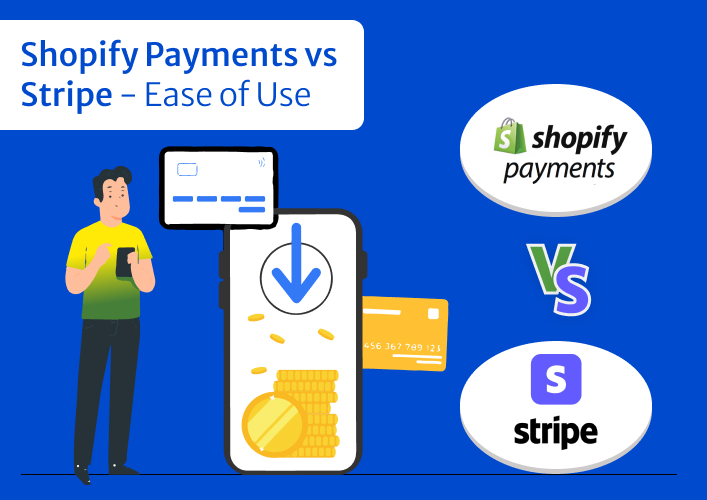Shopify Payments vs Stripe – An Overview
Businesses may take payments through digital wallets, ACH transfers, credit cards, and debit cards thanks to Stripe. Stripe provides a wide variety of payment options, both pre-made and modifiable. It is accessible in over 30 countries and supports 135 different currencies for payment processing. Furthermore, there are several methods to include it in your company’s overall strategy. Shopify and WooCommerce are just two of the many e-commerce platforms that provide built-in support for Stripe. In addition, businesses may utilize pre-built integrations to link their site to Stripe, charge clients via online invoices and shareable links, and process POS transactions using Stripe Terminal.
The only method for e-commerce businesses to take payments on Shopify without incurring third-party transaction fees is by using Shopify Payments, which is included with all Shopify subscriptions. Store owners may accept credit card payments online and in person with the help of Shopify’s streamlined POS system and payment gateway, Shopify Payments. It is accessible in 22 countries and supports over 130 different currencies and interfaces with over a hundred different payment processors.
Shopify Payments vs Stripe – Ease of Use

Online and in-person payments processed via Stripe typically result in accessible funds within 2 business days, however, this time frame might vary by user’s bank and geographic area.
On the other hand, you’ll need a Shopify account in order to use Shopify Payments. To begin collecting payments, you will need to subscribe to the ecommerce website service, but the Payments solution is free to use. You may start accepting payments using Shopify Payments or another service immediately after setting up your Shopify store. Furthermore, you may be subject to additional processing costs if you choose to use an external payment processor in addition to Shopify.
Shopify Payments vs Stripe – Processing Fees
Shopify Payments’ costs are more difficult to understand than those of other payment processors since they change based on the Shopify plan you select. Shopify Basic costs $29 per month plus 2.9% + 30 cents for online payments or 2.7% + 30 cents for in-person sales. Shopify’s e-commerce platform costs $79 a month, with an additional 2.6% + 30 cents for online payments and 2.5% for in-person transactions. The Shopify advanced e-commerce package costs $299 per month, with a transaction fee of 2.4% + 30 cents for each online sale, or 2% for each in-store sale. Lastly, Shopify Plus plans start at $2000 per month and are the most cost-effective option overall, with pricing that varies by region.
Shopify Payments vs Stripe – Pros and Cons
Shopify Payments is already included in all Shopify stores, regardless of the Shopify plan you choose to pay for each month. It may help you minimize your monthly fees if you use Shopify for your online store’s backend. Shopify’s customer service is available through email and live chat around the clock, regardless of the subscription you choose.
In addition, there are bundles that provide access to a help desk by phone.
Shopify Payments is user-friendly, requiring little time to set up and implement. It won’t take more than a few minutes to set up your account and begin tailoring your payment preferences. But, Shopify Payments is restricted to Shopify customers and is only accessible in a subset of regions and nations compared to Stripe.
Conclusion
Ultimately, the choice between Shopify Payments and Stripe depends on your business size, scope, and technical proficiency. Small businesses with simpler payment needs and a focus on the Shopify platform might find Shopify Payments more convenient. Meanwhile, businesses seeking greater customization, international capabilities, and a wider range of features may lean toward Stripe.
FAQs
Which payment processor is better for small businesses?
Does Stripe work with Shopify?
Are there any hidden fees with these payment processors?
Which payment processor has better international support?
Do these payment processors offer fraud protection?
Ravi Bhojani is the Chief Marketing Officer (CMO) at Alian Software, where he spearheads the company’s marketing strategies and drives its brand presence in the competitive IT services landscape. With over a decade of experience in the technology and marketing sectors, Ravi has consistently demonstrated his ability to blend innovative marketing techniques with deep industry knowledge to deliver outstanding results.